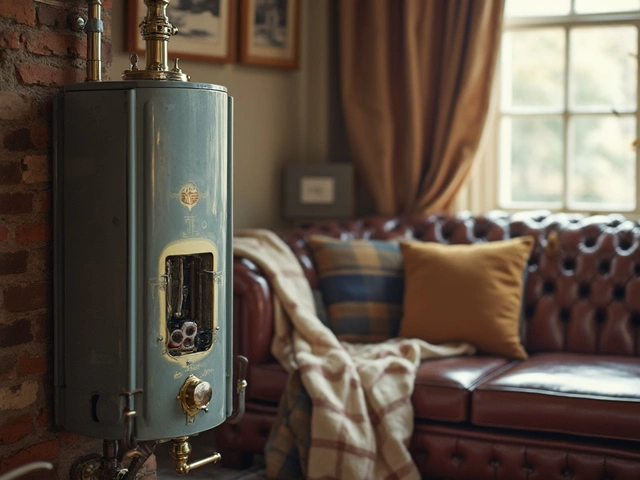Ever wonder why your washing machine gets noisy or your oven refuses to heat? Most of those problems come down to a few basic habits you can adopt today. Managing appliances isn’t rocket science – it’s about regular checks, a bit of DIY know‑how, and knowing when to call in an expert.
Start with the things you do every day. Wipe the door seals on your fridge and freezer – a clean seal stops warm air from sneaking in and makes the compressor work less. For electric hobs, give the burners a quick wipe after each use; leftover food can cause the element to overheat. These tiny actions add up to bigger savings on energy bills and fewer breakdowns.
Different gadgets have different life expectancies. A typical washing machine lasts around 10‑12 years, while a good quality fridge can push 15 years. Heat pumps, whether air‑source or ground‑source, often run for 15‑20 years if you keep up with filter cleaning and annual servicing. Knowing these benchmarks helps you plan replacements before a sudden failure leaves you stuck.
Take our "How Long Do Washing Machines Last?" guide for a deeper dive – it shows the warning signs of aging, like longer spin cycles or unusual noises, and offers simple tricks to extend that life.
Heat pumps deserve special attention. If the unit stops blowing warm air, start by checking the outdoor unit for debris and ensure the indoor fan isn’t blocked. Our "Heat Pump Not Blowing Warm Air?" article walks you through the most common fixes, from resetting the thermostat to cleaning the coils.
When it comes to ovens, the element is the usual suspect. A cold oven often means a burnt heating element. Our step‑by‑step "How to Replace an Oven Element Yourself" guide lists the tools you need and the safety steps to avoid nasty shocks.
Kitchen extractor fans can get greasy fast. If you notice a decline in suction, it’s probably time for a clean or a replacement. Our "How to Replace a Kitchen Extractor Fan Yourself" post walks you through the removal, wiring, and re‑installation process in plain language.
Water heaters also need regular care. Flushing the tank every six months prevents sediment buildup that reduces efficiency. The "How Often Should You Flush Your Water Heater?" guide explains the process without making you feel like a plumber.
Finally, never underestimate the value of professional servicing for boilers and heat pumps. An annual check can spot hidden leaks and safety issues before they become costly emergencies. Our "Boiler Service Cost Guide 2025" breaks down what to expect from a routine visit.
Bottom line: a few minutes of maintenance each week can save you hours of hassle later. Keep an eye on seals, clean filters, watch for odd noises, and don’t shy away from simple DIY fixes. When you’re stuck, our library of easy‑to‑follow guides has the answer – and if not, our team at Bognor Regis Appliance Repair Experts is just a call away.

In the business world, appliances aren't just about the gadgets in your kitchen; they're tools and strategies central to operations. From simplifying daily tasks to enhancing efficiency, appliances play pivotal roles in various business aspects. Understanding their function means knowing how technology, devices, and smart systems integrate into business to drive productivity. Delving into real-life examples, this article provides insights and tips on leveraging appliances effectively.

Replacing the anode rod in a water heater can extend its lifespan and prevent costly repairs. This article breaks down the cost of replacement, including materials and labor, and discusses why it's a crucial part of water heater maintenance. Discover how often anode rods should be checked and what signs indicate it's time for a replacement. Whether you DIY or hire a pro, understanding these factors can save you money and stress.

Replacing an extractor fan might seem challenging, but with the right tools and some guidance, it can be done efficiently. This guide outlines the process of replacing an extractor fan, from identifying signs it needs replacement to understanding how to choose the right model. Learn practical tips for handling installation and maintaining safety during the project. Make this task more approachable with easy-to-follow steps designed for beginners.

Discover practical solutions to restore hot water in your shower with ease. Learn about common problems affecting water heaters and the steps to troubleshoot each issue. This guide will walk you through changing settings, checking components, and knowing when to call a pro. Take control of your hot water system and enjoy a soothing shower experience once again. Ideal for homeowners facing frustrating lukewarm showers.

Wondering if your 20-year-old oven can be repaired? Discover repair tips, replacement part insights, costs, and when it makes sense to swap your old oven for a new one.

Water heaters don't last forever, so it’s important to know how long yours might stick around. Generally, these devices are built to last about 8 to 12 years, but several factors can influence their longevity. By understanding signs of wear, maintenance tricks, and when it's time to say goodbye to your old model, you can ensure hot showers won't become a thing of the past. Let's break down everything you need to know about your water heater's lifespan.